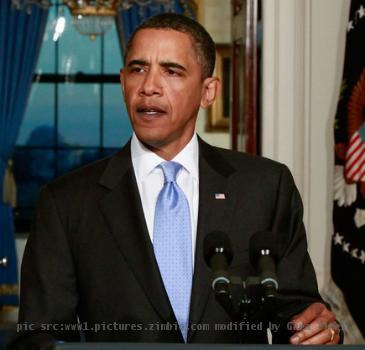Latest effort to contain Gulf oil spill stalls when saw gets stuck in pipe
By Kevin Mcgill, APWednesday, June 2, 2010
Effort to contain Gulf oil stalls with stuck saw
PORT FOURCHON, La. — As the crude crept closer to Florida, the risky effort to contain the nation’s worst oil spill hit a snag Wednesday when a diamond-edged saw became stuck in a thick pipe on a blown-out well at the bottom of the Gulf.
Coast Guard Adm. Thad Allen said the goal was to free the saw and finish the cut later in the day. This is the latest attempt to contain — not plug — the gusher. The best chance at stopping the leak is a relief well, which is at least two months from completion.
“I don’t think the issue is whether or not we can make the second cut. It’s about how fine we can make it, how smooth we can make it,” Allen said.
If the cut is not as smooth as engineers would like, they would be forced to put a looser fitting cap on top of the oil spewing out. This cut-and-cap effort could temporarily increase the flow of oil by as much as 20 percent, though Allen said officials wouldn’t know whether that had happened until the cut could be completed.
Engineers may have to bring in a second saw awaiting on a boat, but it was not immediately clear how long that could delay the operation. Live video showed oil spewing out of the new cut, and crews were shooting chemicals to try to disperse the crude. The cap could be placed over the spill as early as Wednesday.
The effort underwater was going on as oil drifted close to the Florida Panhandle’s white sand beaches for the first time and investors ran from BP’s stock for a second day, reacting to the company’s weekend failure to plug the leak by shooting mud and cement into the well, known as the top kill.
Meanwhile, President Barack Obama said in prepared remarks that it was time to roll back billions of dollars in tax breaks for oil companies and use the money for clean energy research and development. He said the catastrophic Gulf oil spill shows the country must move toward clean energy, tapping natural gas and nuclear power and eliminating tax breaks for big oil.
The Justice Department also has announced it started criminal and civil probes into the spill, although the department did not name specific targets for prosecution.
Shares in British-based BP PLC were down 3 percent early Wednesday before recovering in London trading, a day after a 13 percent fall. BP has lost $75 billion in market value since the spill started with an April 20 oil rig explosion and analysts expect damage claims to total billions more.
In Florida, oil was about seven miles south of Pensacola Beach, Allen said.
Thunderstorms were making it difficult to track the slick, Escambia County emergency director John Dosh said, and officials hoped the weather would clear so they could get an aerial view.
It was raining and cloudy at the beach off and on. The four pirate flags on top of Peg Leg Pete’s Oyster Bar on the beach where flapping eastward, which could send the oil closer to shore. Peg Leg Pete’s is a beach institution frequented by boaters who pull up behind the restaurant in a cove off Pensacola Bay.
It was a slow Memorial Day weekend. Hundreds of tourists enjoyed the turquoise waters, but it wasn’t as busy as usual.
“We are looking at a Wednesday to Friday shoreline impact, but there is a line of uncertainty that depends on the wave action and the winds,” Dosh said.
“Today we are in a monitoring mode.”
Emergency crews began scouring the beaches for oil and shoring up miles of boom, though choppy waters from thunderstorms could send the oil over the protective lines. County officials are using the boom to block oil from reaching inland waterways but plan to leave beaches unprotected because they are easier to clean up.
“It’s inevitable that we will see it on the beaches,” said Keith Wilkins, deputy chief of neighborhood and community services for Escambia County.
The oil has been spreading in the Gulf since the Deepwater Horizon rig exploded six weeks ago, killing 11 workers and eventually sinking. The rig was being operated for BP, the largest oil and gas producer in the Gulf.
Crude has already been reported along barrier islands in Alabama and Mississippi, and it has polluted some 125 miles of Louisiana coastline.
Some 2,000 feet above the Chandeleur islands off the Louisiana coast, vast stretches of sheen meandered through the water, some reflecting pale rainbow colors. Farther away, swaths of oil was in various sizes and thickness — from pale, barely detectable streams to rust-rimmed blue and purple patches that looked like giant bruises.
“The problem is this oil now is really like a collection of smaller spills,” Allen said during flight in a C-144.
Allen, the national incident commander for the spill, said the threat of oil hitting the coast was shifting east and skimmer vessels would be working offshore to intercept as much crude as possible.
Earlier this week, BP officials said they were concentrating cleanup efforts in Louisiana because they did not expect oil to reach other states. The company has set up floating hotels on barges to house cleanup crews closer to the Louisiana shores.
In Venice, La., hundreds of oil response workers were grounded by storms and many local fishermen hired in the so-called vessels of opportunity program were sent home early. Venice is a major staging center for the oil response, with nearly 1,500 workers and dozens of boats in this small town in the marshes.
“Boats were staged and ready to go” in case there was a break in the weather, said BP spokesman Mike Abendoff.
Some work continued, including at a 32-acre site where an “employee village” is being built to eventually house as many as 1,500 workers in trailers. Abendoff hoped to start putting some workers there by early next week.
More federal fishing waters were closed, too, another setback for one of the region’s most important industries. More than one-third of federal waters were off-limits for fishing, along with hundreds of square miles of state waters.
Bluestein reported from Covington, La. Associated Press writers Darlene Superville and Pete Yost from Washington, Curt Anderson from Miami, Kevin McGill in Schriever, Melissa Nelson in Pensacola, Fla., Brian Skoloff in Port Fourchon, Mary Foster in Boothville, and Michael Kunzelman in New Orleans also contributed to this report.
Tags: Accidents, Barack Obama, Beach, Coastlines And Beaches, Energy, Energy And The Environment, Environmental Concerns, Florida, Louisiana, Memorial day, New Orleans, North America, Oil spill, Pensacola, Pensacola Beach, Personnel, Port Fourchon, Schriever, Summer, United States












